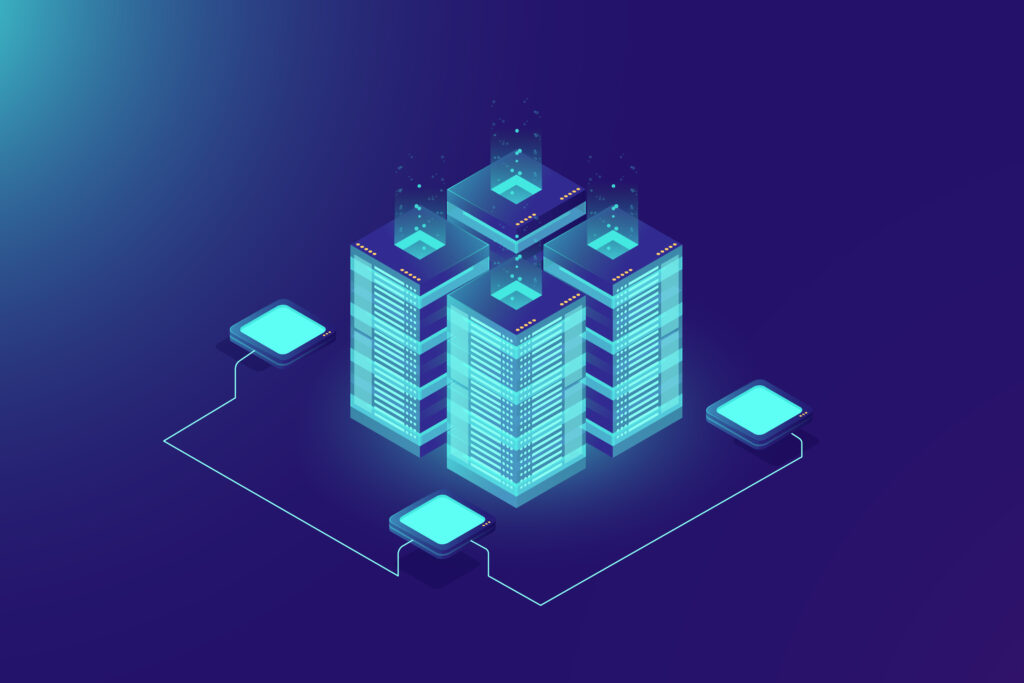
Blockchain emerged to revolutionize the way we store and exchange information. The technology was initially created to make Bitcoin transactions—the first virtual currency—more secure and transparent.
The word “blockchain” can be broken down into two parts: “block” and “chain,” referring to a “chain of blocks.” Each block contains a set of data. This information is protected by encryption techniques.
In the context of supply chains, blockchain allows tracking all stages of the process, from the origin of raw materials to delivery to the consumer. This is because the technology is immutable, meaning the data recorded in the block cannot be altered or deleted.
According to research by MarketsandMarkets, a B2B sector research company, the global blockchain market is expected to reach over $94 billion (equivalent to R$ 451.2 billion) by 2027, with an annual growth rate of 66.2%.
A Gartner study with technology executives from 84 countries showed that blockchain adoption is still limited. Only 9% of respondents said they already use the technology, but 45% stated they plan to implement blockchain in their companies.
Benefits of blockchain for supply chains
1. Transparency and Traceability
By creating an immutable and accessible record of all transactions and product movements, blockchain technology makes supply chain processes more transparent and traceable. This enables companies to identify and resolve issues more quickly and efficiently, reducing potential risks and fraud.
2. Security and Immutability
All transactions and data in blockchain are protected by advanced cryptographic algorithms. Each transaction is recorded in a block, ensuring the data is immutable and protected against tampering. The immutability of the information makes the technology more secure and reliable for managing transactions and records.
3. Operational Efficiency
By enabling real-time traceability of information, blockchain increases the efficiency of supply chain operations. Automating sector processes reduces errors and operational costs. Additionally, collaboration among partners is strengthened, as the technology promotes more secure commercial transactions.
4. Sustainability and Compliance
The adoption of blockchain in supply chains strengthens sustainability in companies. By automating and optimizing processes, the technology reduces the need for physical resources and energy, minimizing the environmental impact of logistics operations. With traceability, blockchain also facilitates efficient waste management.
5. Cost Reduction
The use of blockchain accelerates the processing of transactions and verifications in supply chains, reducing the time and expenses associated with manual processes. Access to real-time data improves supply planning and decision-making, resulting in cost reductions for the sector.
How the synergy between AI and blockchain will revolutionize supply chains
The combination of artificial intelligence and blockchain technologies promises to transform the efficiency, security, and transparency of supply chains. AI, with its ability to analyze large volumes of data, can predict demands, while blockchain ensures the integrity and authenticity of information, resulting in faster and more accurate decisions.
In the sustainable context, AI can identify more efficient and environmentally responsible practices, while blockchain has the power to record and verify these practices, ensuring regulatory compliance. This not only enhances supply chains regarding ESG aspects but also strengthens consumer trust.
The integration of these technologies also provides more robust supplier management, increasing the quick identification of problems and minimizing supply-related risks. Thus, companies can focus their efforts on strategic decisions in the sector, optimize resources, and strengthen competitiveness in the market.
See you next time!


 Português do Brasil
Português do Brasil Español
Español Português
Português
